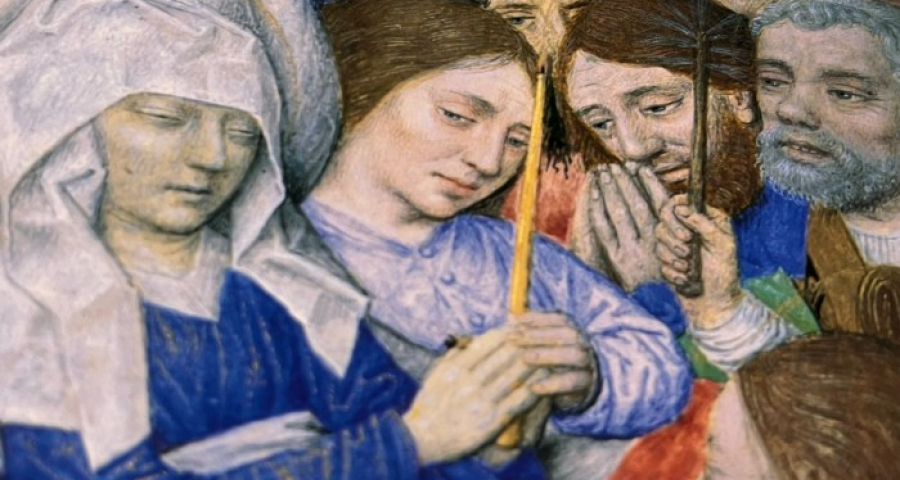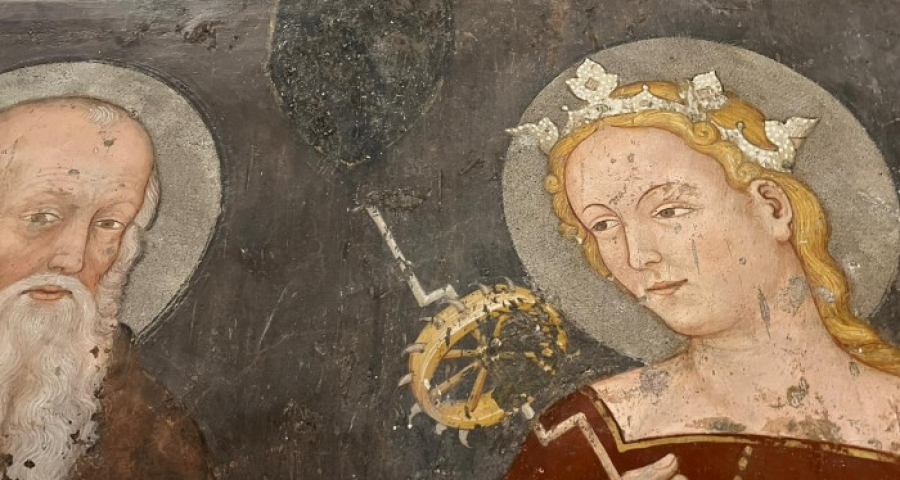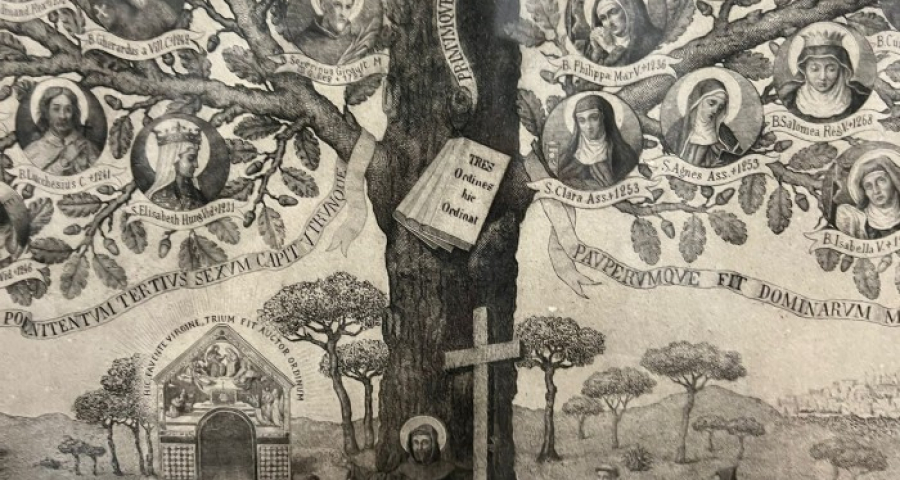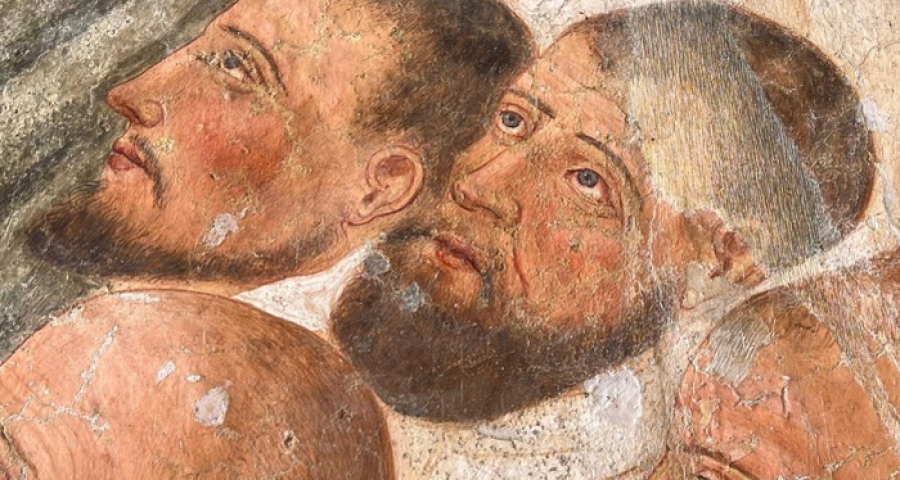The land of We/7 - following Fuoco, Achille Loria criticized rent as an element of injustice
by Luigino Bruni
published in Avvenire on 04//11/2023
The Counter-Reformation was an ambivalent season, in which the shining examples of the Franciscan Monti were intertwined with dark phenomena in other lands. For Italian economic science, however, it was a good time. While theology and philosophy become risky places due to the widespread control of the Holy Office, the arts, music, sciences and even economics remained safer places where thinkers could express themselves with greater freedom. And so, an age poor in great theologians and philosophers (especially when compared to Northern Europe) generated many excellent writers, musicians, artists, and economists.
The Mediterranean and Catholic economic genius was most expressed in the Kingdom of Naples. The Neapolitan economic tradition began between the sixteenth and seventeenth centuries, thanks to Antonio Serra from Cosenza, who wrote a brief treatise (in 1613) considered by many to be the first study of modern economics, not only in Italy. Then came the great season of the Neapolitan eighteenth century, that of Ferdinando Galiani, Antonio Genovesi, Filangieri, Dragonetti and dozens of other excellent economists who wrote about money, credit, and above all "Public happiness". A tradition that remained alive and stimulating until the first half of the nineteenth century with Francesco Fuoco, who can be considered the last of the Italian classical authors.
The birth of the Kingdom of Italy generated a strong tendency to consider only the English and French versions as the "true" economic science and therefore the Neapolitan tradition ended up being judged obsolete and retrograde. Meanwhile, Anglo-Saxon economic science was changing track; it soon departed from the great themes of development and the well-being of peoples and focused on the individual and his usefulness. In this cultural context, the Neapolitan paradigm of Public Happiness, interested more with society than with individuals, appeared even more distant and alien and was soon forgotten.
Francesco Fuoco, "a bizarre and acute spirit" (T. Fornari, Economic Theories of the Neapolitan Provinces, p. 615), was not only an excellent writer on credit and banking. He wrote remarkable pages in many other areas of economic science. In the wake of Genovesi, Fuoco considered the market as a providential form of "mutual aid" and reciprocity. Therefore, the ‘division of labour’ does not divide but unites societies: "The division of labour is not opposed to reunion, on the contrary it presupposes it and serves to make it stronger and more durable" (Scritti Economici, 1825, I, p. 205). In particular, the various professions are a great language of cooperation and mutuality, the first cement of societies: "The division of labour is only the distinction of professions. The more industry is perfected, the more the subdivisions multiply and the more numerous the professions become" (p. 207).
Therefore, industry and the economy are seen by Fuoco as a dense cooperative network where, by working, each person satisfies the needs of others, in reciprocity. Work is a civil language of cooperation, thanks to which thousands, today millions of people, assist and cooperate without even knowing each other. And at this time in which we live when the business narrative is entirely centred on competition, on beating competitors, on antagonistic and warrior virtues, Fuoco and the Neapolitan school tell us an opposite story: the market is civilization because it favours cooperative and kind virtues, because it is based on the golden law of positive reciprocity: "In this way, peoples have become members of a vast family, and a kind of community has been established among all the inhabitants of the earth" (p. x).
But it is on the ‘theory of rent’ that Fuoco concentrated his theoretical energies. During his time in France, he became acquainted with the recent English debate on the rent of land. In particular, he studied the theory of David Ricardo who, in his Principles of Political Economy (1817), proposed a theory of the destruction of income and capitalism different from that of A. Smith, focusing on rent as the key to understanding the dynamics of capitalism. A few years later, Fuoco wrote an essay on rent (in 1825), where he presented the debate, amending and completing it. What was the focus of Fuoco's discourse?
The theory of rent rests on two pillars: (i) the centrality of entrepreneurs (or capitalists) to the wealth and development of nations; (ii) the structural conflict between entrepreneurs and landowners (or rentiers). There are three social classes and three respective incomes: the wage goes to the workers, the profit to the entrepreneurs and the rent to the landowners. Since wages are fixed at subsistence level, the two variables of the economic system are profits and rents, which are in a rival relationship with each other: if one increases, the other decreases. Hence the fundamental idea: economic development meets its limit in the radical conflict between income earners and entrepreneurs, a conflict won by income earners because the dynamics of capitalism lead to a large increase in rents to the detriment of profits. And since entrepreneurs are the engine of development, the reduction in profit leads to the system coming to a standstill: "As rents grow, profits decrease and as profits decrease, saving and therefore accumulation becomes more difficult" (Economic Writings, I, p. 57).
Fuoco was convinced that Public Happiness depended on the growth of industry and therefore of entrepreneurs and consequently on the decrease in the power of rentiers; also because, unlike Ricardo and Malthus, Fuoco was convinced that the growth of rents would push wages downwards and impoverish workers and "consumers" (a word present in his system). Hence his radical proposal on tax matters: "If the government's revenue [taxation] were derived only from land rent, industry would not suffer any damage" (p. 67). This is a thesis that is still prophetic if we think about the low taxation of assets and income of all kinds. Fuoco goes even further, venturing into the realm of social utopia: "If the lands did not belong to anyone, the total income from them could be used for State expenses” (p. 67). A thesis that prefigures the theory of the ‘free land’ of the Mantuan Achille Loria (1857-1943), another great Italian economist, who has been forgotten.
It is in fact Loria himself who praised his Neapolitan predecessor: “Francesco Fuoco, acute illustrator of the Ricardian theory of rent and remarkable for the pre-eminence he assigned to the relations of distribution over those of production" (A. Loria, Towards social justice, 1904, p. 90). In fact, for Fuoco production was very important but he was convinced, and we with him, that if the mechanism that allocates income shares to the various social classes (i.e. "distribution") is distorted and perverse, production will stall.
In the search for the "meridian spirit" of capitalism, Loria is an extremely important author in our history. While the wagon of economic science shifted to consumer preferences and turned into mathematics applied to individual choices, Loria, with infinite tenacity, put the "old" rent at the heart of his theory. He did so throughout his life, as if it was his vocation, from his first university studies in Siena until his death which overtook him in his home in Luserna San Giovanni (To) while the fascists were trying to capture him because he was Jewish. In fact, in his degree thesis he wrote: "Ground rent is not only the most important phenomenon of the entire social organism, but is itself its synthesis" (Land rent, 1880, p. xiii). Loria was a critic of capitalism similar to and different from Karl Marx. Like Marx, he also wanted to understand the great movements of society starting from economic relations; but while for Marx the axis of capitalism was in the conflict between wages and profits, for Loria (and Fuoco) the decisive conflict was between rents and profits: "The real basic split of the two classes of wealth is that which exists between the class of landowners and the class of capitalists as they have antithetical and opposing interests and are therefore in perennial conflict " (La sintesi económica, 1910, p. 211).
Between the nineteenth and twentieth centuries, Loria wrote monumental works to give even greater foundation to his thesis and thus present a theory of historical materialism alternative to that of Marx and F. Engels with whom he had fierce public controversies, partly reported in his Preface to the third volume of Marx's Capital. Loria's story is the story of a defeat. His theory of rent remained crushed "on the left" by the growth of Marxism (A. Gramsci sarcastically coined the expression "Lorianism") and "on the right" by the new liberal neoclassical economy represented in Italy by Pantaleoni and above all by Pareto (who, with his known arrogance, considered Loria a charlatan). Loria, increasingly alone and marginalized (respected by only a few, including Luigi Einaudi), continued to believe in his theory of rent, which over time no longer concerned only land rent but extended to every form of income that exists today thanks to the privileges of yesterday (this is, in essence, rent). This is why he also wrote about financial and banking income - today would he have also dealt with consultancy income to the detriment of entrepreneurs? The theory of rent was therefore the instrument with which Loria criticized a capitalism that was becoming increasingly speculative and distant from work: "The truth is that behind the healthy and normal economic world that the classical school is pleased to paint, behind the farms and estates, the workshops and factories, in dark basements a mob of counterfeit money moves and trades, manipulating and trafficking the wealth of others and extracting very large profits through fraud" (Course in Political Economy, 1910, p. 303).
We can thus understand one of his most beautiful statements: "Anyone who observes human society with a dispassionate soul can easily perceive how it presents the strange phenomenon of an absolute, irrevocable split into two strictly distinct classes; one of which, without doing anything, appropriates enormous and growing incomes, while the other, more numerous by far, works from the morning to the evening of his life in exchange for a Meagher wage; in other words, one lives without working while the other works without living, or without having a dignified life" (The economic bases of the social constitution, 1902, p. 1). The classical system of Ricardo, Fuoco and Loria was three-dimensional: land, labour, capital. The neo-classical economic science of the late nineteenth century instead became two-dimensional: labour and capital. This transformation did not only generate the loss of the theoretical depth that the third dimension of the earth brought with it. The eclipse of the earth in capitalism is one of the main causes of the destruction of the planet and the loss of roots. In an interview (with "The modern office") that he gave on the occasion of his retirement from teaching at the University of Turin, to the question "What is the strongest stimulates for your scientific interest?” Loria replied with a phrase that we should write in all the Economic Departments of the world: " Human suffering".













